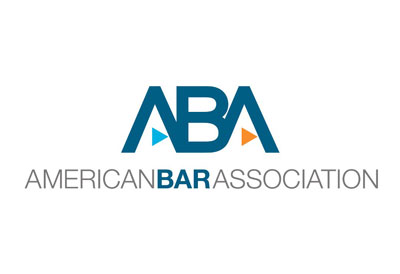When safety is at risk due to threats, abuse, or harassment, Maryland courts provide legal protections through Protective Orders and Peace Orders. These civil orders can help individuals and families create clear, enforceable boundaries to prevent further harm.
Protective Orders in Maryland

Protective Orders apply when the respondent is a family member or someone with a close personal relationship. Maryland law allows Protective Orders for:
- Current or former spouses
- Close blood relatives or in-laws
- Parents of a minor child together
- Vulnerable adults who rely on others for care
- Victims of a rape or sexual assault that occurred within the last six months
- Partners who have lived together in a romantic relationship for at least 90 days
Protective Orders can include no-contact orders, stay-away provisions, firearm surrender, temporary custody of children or pets, and emergency financial support. These orders can last up to one year and may be extended for an additional period if ongoing protection is needed.
Getting a Protective Order in Maryland
To request a Protective Order, Maryland residents must file a petition with the court that describes their relationship to the respondent and provides specific details about the abuse, threats, or harassment. Supporting evidence such as police reports, medical records, photographs, text messages, or witness statements can be used to strengthen the petition. Maryland courts also offer important safety provisions, including the right to request confidential filing of addresses and phone numbers and the ability to ask the judge to keep sensitive information out of public records.
A judge may issue a temporary Protective Order the same day the petition is filed, to provide immediate protection until a court hearing can be scheduled. At the hearing, the judge will consider testimony and evidence to decide whether to issue a final Protective Order.
Filing correctly and protecting your privacy are essential steps in this process. The attorneys at Milstein Siegel can help you complete the necessary forms, collect and organize evidence, file your petition quickly, and request confidentiality where appropriate. Their legal team can also advocate for you in court and assist with enforcing the order if it is later violated. Working with an experienced attorney can provide support and guidance during what is often a stressful and difficult time.
Peace Orders in Maryland

If your circumstances do not meet the requirements for a Protective Order, you may need to petition for a Peace Order instead. These offer protection from individuals outside of family or intimate relationships. They cover situations involving:
- Harassment
- Stalking or trespassing
- Intentional property damage
- Non-consensual sharing of intimate images
- Unauthorized surveillance
Peace Orders require filing within 30 days of the incident. If the courts are closed, an interim Peace Order can be requested through a District Court commissioner to provide immediate short-term protection. Once filed, the court may issue a Temporary Peace Order that typically lasts up to seven days, providing immediate safeguards while a full hearing is scheduled. After the hearing, the judge can issue a Final Peace Order, which may remain in effect for up to six months and can be renewed if necessary.
Successfully obtaining a Peace Order often depends on presenting clear evidence and following specific court procedures. Working with an experienced attorney can help you build a strong case, gather documentation, meet deadlines, and present your concerns effectively in court. Milstein Siegel can guide you through each step of the Peace Order process and advocate for the protection you need.
Main Differences
The central difference between Protective Orders and Peace Orders is the relationship between the parties involved:
- Protective Orders: Apply to family members or intimate partners
- Peace Orders: Apply to individuals outside of those relationships
Selecting the correct order is essential for securing protection.
Emergency Protection and Firearm-Related Orders
You may be able to attain interim orders outside regular court hours if danger is imminent. Maryland also offers Extreme Risk Protective Orders (ERPOs), which enable family members, medical professionals, or law enforcement to call for the temporary removal of firearms from individuals who pose a danger.
Enforcing Protective and Peace Orders

Violating a Protective Order or Peace Order is a serious offense in Maryland. Possible consequences include arrest, contempt of court, and criminal charges. Legal support is important when seeking enforcement, filing violation reports, or addressing further court action.
Get Help Filing a Protective or Peace Order
Protective and Peace Orders are powerful legal tools, but filing for protection can be a complex process. Collaborating with an experienced family law attorney can help ensure that paperwork is accurate, deadlines are met, and your rights are fully protected.
Our Process
Consultation
We begin with a confidential consultation to assess your situation, explain the differences between protective and peace orders, and determine which type of relief—if any—is appropriate for your circumstances.
Strategic Planning
We quickly develop a strategy based on the urgency and nature of the claim. Whether you’re a petitioner or respondent, we prepare a plan to secure the most effective legal outcome possible under Maryland law.
Preparation & Documentation
Our team gathers key evidence such as texts, emails, voicemails, witness accounts, hospital records, police reports, or timelines that support your case. We file the appropriate emergency or interim petitions when necessary.
Hearings & Representation
We represent you in district and circuit court hearings, whether you’re requesting an interim, temporary, or final order—or contesting one. We advocate for your safety, reputation, and legal position with clarity and strength.
Coordination with Custody or Divorce
If your order affects custody, access, or parenting rights, we bridge your protective order proceedings with ongoing divorce or family law matters to ensure consistency and protection across all filings.
Ongoing Support
We continue to guide and support you through modification requests, order enforcement, or when additional family law services become necessary for lasting safety or stability.
Let Milstein Siegel guide you every step of the way as you seek legal protection or defend your rights in a sensitive and urgent matter.
Milstein Siegel Protects Your Rights and Safety
Milstein Siegel assists clients throughout Maryland with Protective and Peace Orders. If you need help seeking protection, call (410) 760‑9433 or request a confidential consultation online to get started.
Trusted Maryland Representation in Protective and Peace Order Cases







